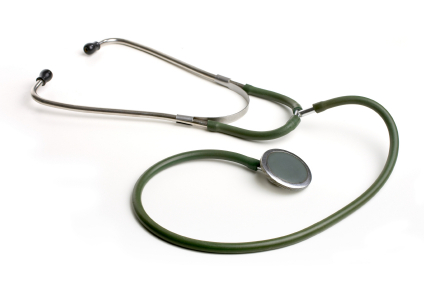Vestibular rehabilitation (VR) is effective in reducing dizziness and vertigo and associated falls and improving quality of life in people with disorders involving balance mechanisms.
Good balance is essential for daily life, from getting out of bed to crossing the road. A healthy balance system uses information from the brain, inner ears, eyes, and joints, and enables people to see clearly when moving their head.
Balance disorders and dizziness are a growing public health concern across all age groups. Prevalence increases with age and these disorders are some of the most common complaints reported to GPs by older patients. Untreated, they result in worsening unsteadiness, loss of
Are you a CSP member? Please tell us how we can improve these briefings. Just login and complete our pop-up survey
confidence and anxiety, difficulty with concentration and memory, inactivity, loss of independence, an increased risk of falls and costly falls-related injuries.
What causes dizziness?
Size of the problem
- Almost 1 in 4 adults under 65 years report dizziness or vertigo, often causing occupational difficulties or preventing employment but less than 25 per cent had received treatment
- About 20 per cent with vestibular vertigo avoid leaving the house and 41 per cent require sick leave
- Over 38 per cent of those aged over 85 years fall annually; half in combination with dizziness or blackouts
- 2.4 per cent lifetime prevalence of BPPV alone, with only 8 per cent receiving effective treatment.
The most common form of dizziness and balance disorder is BPPV (Benign Paroxysmal Positional Vertigo), a disorder of the inner ear resulting in episodes of intense dizziness on certain head movements.
Other causes include side effects from medication or alcohol, brain disorders such as stroke, concussion or cerebellar degeneration, cardiac problems and anxiety.
What is vestibular rehabilitation?
VR is an exercise-based programme to encourage the central nervous system to compensate for problems in the inner ear. Following thorough examination, specialist physiotherapists develop personalised exercise-based management plans including home exercise programmes.
A management plan may include:
- Eye and head movement exercises
- Exercises to improve standing balance and walking
- Specific techniques to reposition fragments in the inner ear which cause dizziness in BPPV
- Education and advice on activities of daily living to improve confidence & function
- Advice on falls reduction/prevention.
Significant improvement is achieved in:
- 80 per cent of patients with unilateral vestibular loss (e.g. labyrinthitis, acoustic neuroma surgery)
- 80 per cent of patients with BPPV after one treatment session
- Patients with a central cause (e.g. stroke) may show some improvement
- Use of VR in concussion, migraine, and nonspecific balance loss of the elderly may be helpful.
Physiotherapists are ideally placed to provide early screening and intervention to minimise the impact on daily life of balance and dizziness disorders.
Specialist physiotherapists provide personalised VR programmes which are clinically effective reducing distressing symptoms and improving quality of life.

Case study
Cost of ill health
- 80 per cent of unexplained fallers attending A&E had possible vestibular loss, 41 per cent had vertigo, with 30-40 per cent admitted to hospital
- Fallers use more than 4 million bed-days, cost the NHS £2.3 billion and incur total costs including social-care of £5.6 billion. Costs per faller are £1,720, rising to £8,600 for those seeking medical care
- The costs of BPPV are significant; American healthcare costs to diagnosis BPPV alone approach $2 billion
- Untreated dizziness/balance disorders may lead to anxiety, avoidance strategies and increased risk of falling, impacting further on resources.
Over a six month period, the introduction of an award-winning Specialist Physiotherapy and Audiology service for patents referred with balance/dizziness disorders at Aintree Hospitals, Liverpool, has reduced waiting times and achieved excellent patient satisfaction. 80 per cent of patients are now managed exclusively in physiotherapy led clinics with 52 per cent assessed, diagnosed and treated in one session.
Download this briefing as a PDF, with full references, in English or Welsh below